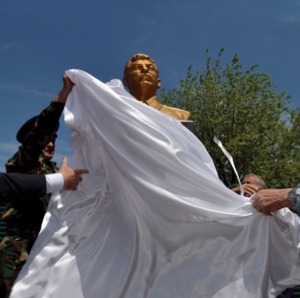The Israel-Palestine conflict arouses strong emotions in people all over the world; among those both with and without direct ties to either side. Most people's views on the conflict are expressed peacefully, and to a large extent rationally - but these are accompanied by something more worrying. Since the latest round of fighting began, there has been a sharp rise in anti-Semitic incidents in the UK. Thankfully, such incidents are less common in Britain than elsewhere in Europe (in France and Germany, in particular, there has been high profile violence), but it has been reported that more than 100 incidents have been recorded by community organisations and police this month – around double what is normally experienced. There have been bomb threats, a rabbi attacked, bricks thrown at synagogues, and a #HitlerDidNothingWrong hashtag on Twitter. In one of the worst incidents, a rabbi was attacked by four teenagers outside a Jewish boarding school in Gateshead. The teenagers have been charged with racially aggravated assault.
While some reports have pointed out that there is no definitive evidence that these attacks are all linked to events in Gaza – and, of course, any reasonable person understands that being Jewish does not automatically mean affiliation with Israel – some of the incidents have a clear link; the bomb threat was made, by telephone, to a pro-Israeli organisation in London, while some verbal abuse has included the word “Zionist”.
It is nothing new for international tensions to have an impact on communities in the UK. During the last Israeli bombardment of Gaza, in 2009, there was a similar rise in anti-Semitic attacks in Britain, which has been compared to the current spike. After the 9/11 attack on the Twin Towers, numerous anti-Muslim incidents were recorded in the UK.
And racist attacks or hate crimes are not the only way that international events can play out in the UK. There are other, harder to quantify effects, too. That can take the form of minority communities feeling alienated from or angry with the state; for example, when the UK is engaged in military action in their countries of origin. People of Afghan and Pakistani origin have, for example, reported that after British military action in those countries, they feel that travel to these countries to visit relatives turns them into objects of suspicion.
A 2011 report by the Joseph Rowntree Foundation looked at the impact of overseas conflict on UK communities. It suggests that, despite these many negative effects, there are also some positives, such as the possibility for dialogue between individuals:
“The 'super-diversity' of the UK, particularly in London, has further complicated this situation [of international conflict playing out in Britain]. Encounters between individuals from warring sides of conflicts overseas are inevitable, but this was frequently reported as a positive opportunity, even when some tension was present.”
But, of course, when specific incidents cause an immediate rise in hate crimes, clearly these positive opportunities are not taking first place. As appears to be the case in the current situation, international conflicts can easily serve as a simple excuse for race hate. A rabbi in Gateshead bears no more responsibility for the bombardment of Gaza than an Indian shopkeeper in London does for the attack on the Twin Towers. Such elisions – where entire ethnic or communal groups are seen as a single block with collective responsibility or traits – are a defining feature of racism.
Mark Gardner, of the Community Security Trust, which helps protect Jewish organisations, made a similar point while discussing the current rise in anti-Semitic abuse: "In recent years, Jewish and Muslim communities have come together on issues of anti-racism, insecurity and it's very important that such progress is not derailed by overseas conflicts for which none of us bear any responsibility and over which we hold a variety of opinions." When people cease to see fellow citizens as individuals and instead fall back on broad ethnic or religious divisions, it simply replicates the tragedy of overseas conflict on a micro-level.

